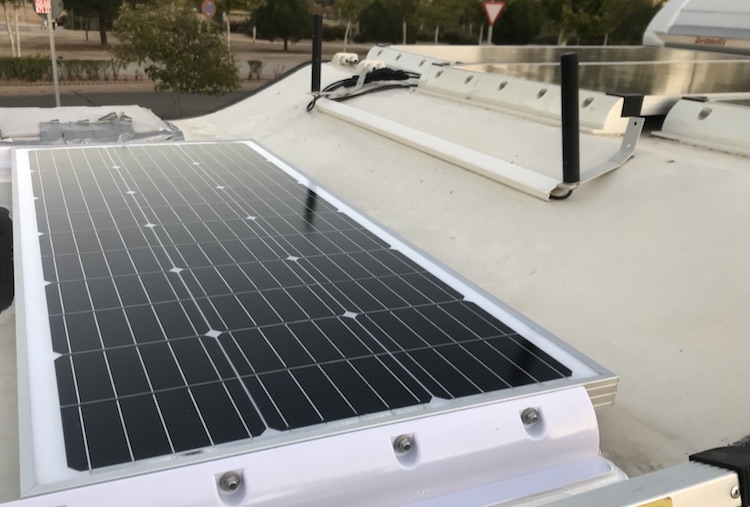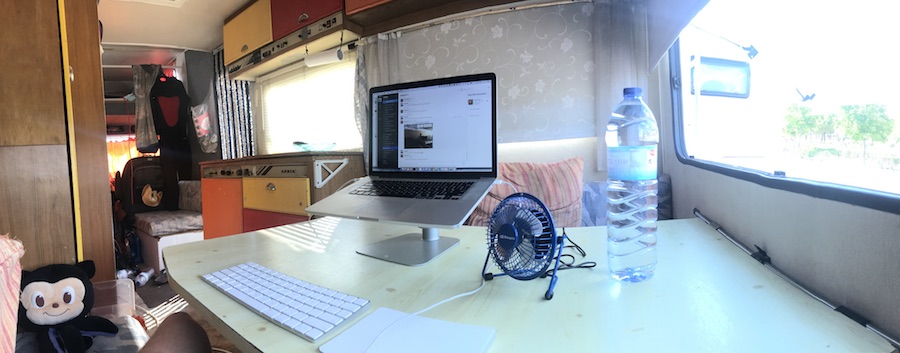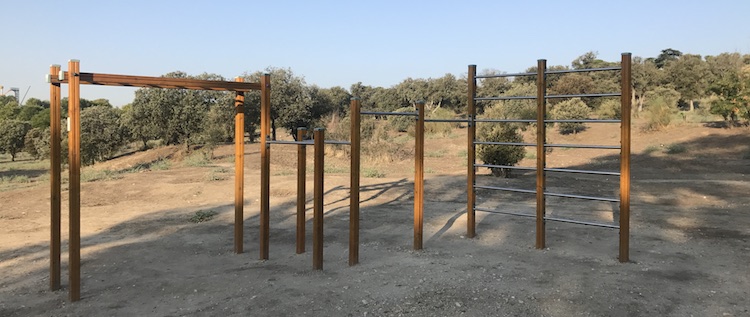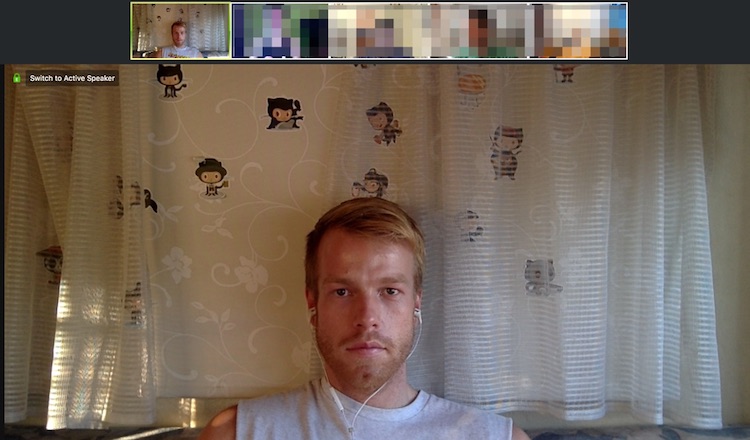I got a lot of feedback after writing about the first 150 days of van life. Some people wondered about my productivity: How do I get shit done while living in a van across Europe?
My setup
Every job requires some basic tools. In my case as a software engineer, I need a laptop that depends on electricity and a reliable internet connection. Constant electricity is guaranteed by my solar system with 450Wp and an ample battery capacity of 200Ah. I stay online via a 4G wireless router that is connected to external antennas on the roof for better signals.
I work with a prepaid SIM-card from WIND. The Italian telecom operator offers the GIGA International plan to foreigners: 20GB for 9 Euros. So far I successfully used it in Italy, France, Spain and Portugal without any connectivity issues. I usually have to top up my account two or three times a month.

I usually work from the back of my van on a table. For more flexibility, I use an external keyboard and trackpad. A height adjustable laptop stand allows me to sit in an upright position without bending my neck. I planned to install a separated display in the van. But during my first weeks, I got used to working on my 15” laptop screen. I don’t really miss the second display that I used in Berlin.
Working asynchronously
All my teammates work and live across the American continent. To overcome the time differences, we mostly communicate asynchronously. When working asynchronously, the outcome becomes way more important than anything else. It’s more about the what than about the when, where, or how. While sleeping, my peers don’t care if I review their work in Europe at 9am or 1pm. They don’t care if I do the review from a co-working space in Berlin or from my van next to a beach. They also don’t care if I do the review in one go or in incremental chunks. They only care about receiving a high-quality review within a day.
Asynchronous communication means a lot of writing. Before solving an issue, I write down a detailed problem statement. It helps others and myself to get a better understanding of what I’m working on. Next, I divide the problem into sub-problems until I have a list of manageable tasks. A structured list of clear tasks allows others to easily follow or join my work asynchronously. Such a list is also helpful to stay focused. I need several mental breaks a day. When coming back to my van from a nap in my hammock or exercising in the park, it’s really helpful to read through the task list to get back into the zone.
Managing working time
As a remote worker you usually can, or have to, manage your working time autonomously. Which is great because you can adjust your working time to your personal needs. At the same time it requires a lot of discipline. Especially when you work from home. I’m quite sure a lot of remote workers have experienced a day, when they’d start to work in their pajamas, forget to eat breakfast and stay at their home office all day without seeing the sun or any other people.
In Berlin I used to work from a co-working space to avoid those kind of issues. I usually arrived at the office around 10am and left around 7pm. So I spent about 9 hours a day in my work environment. Of course I wasn’t constantly working during these 9 hours. I chatted with folks from the co-working space, met with other people for lunch or read some interesting blogs. Still these breaks happened in a very work related environment. I never went to a nearby park to take a nap. I rarely went to the gym during my working hours. Although I had a very flexible schedule, most of my private activities took place after work in the evening.
That changed after moving into the van. The van life allows me to better integrate personal activities into my work routine because everything is closer: There are people around who tell me stories unrelated to programming. There’s a hammock right in front of my van for taking a relaxed nap outside, a workout park where I can do pull-ups and dips or a beach where I can take a sun bath to get my daily fill of vitamin D.
As soon as I realize that I lose concentration, I accept it and I stop my work. I close the laptop and do something that helps my brain to relax. Sometimes a break takes 10 minutes and sometimes a break takes 3 hours. But when I open the laptop again, I’m ready to focus again. Using my working time more efficiently allows me to spend more time for myself. Maybe one reason why I feel more balanced is consciously spending more time on things and activities that I really enjoy.
Did my productivity change?
Measuring the performance of a software engineer is hard. Maybe by the number of contributions? When looking at the contribution graph of my GitHub profile, you can’t really tell that something changed on May 11th 2017, when I left Berlin. But I don’t think there is a simple metric like the number of contributions that would indicate a developer’s productivity. The qualitative impact of my daily work seems way more important.
I really like what one of my co-workers told me when asking about my productivity:
The only thing that has changed is your background in our video calls: Octocat stickers instead of the white wall of the co-working space in Berlin.
Based on the regular positive feedback from my peers and my own evaluation, it doesn’t seem like the van life had a negative impact on my work performance. ![]()


